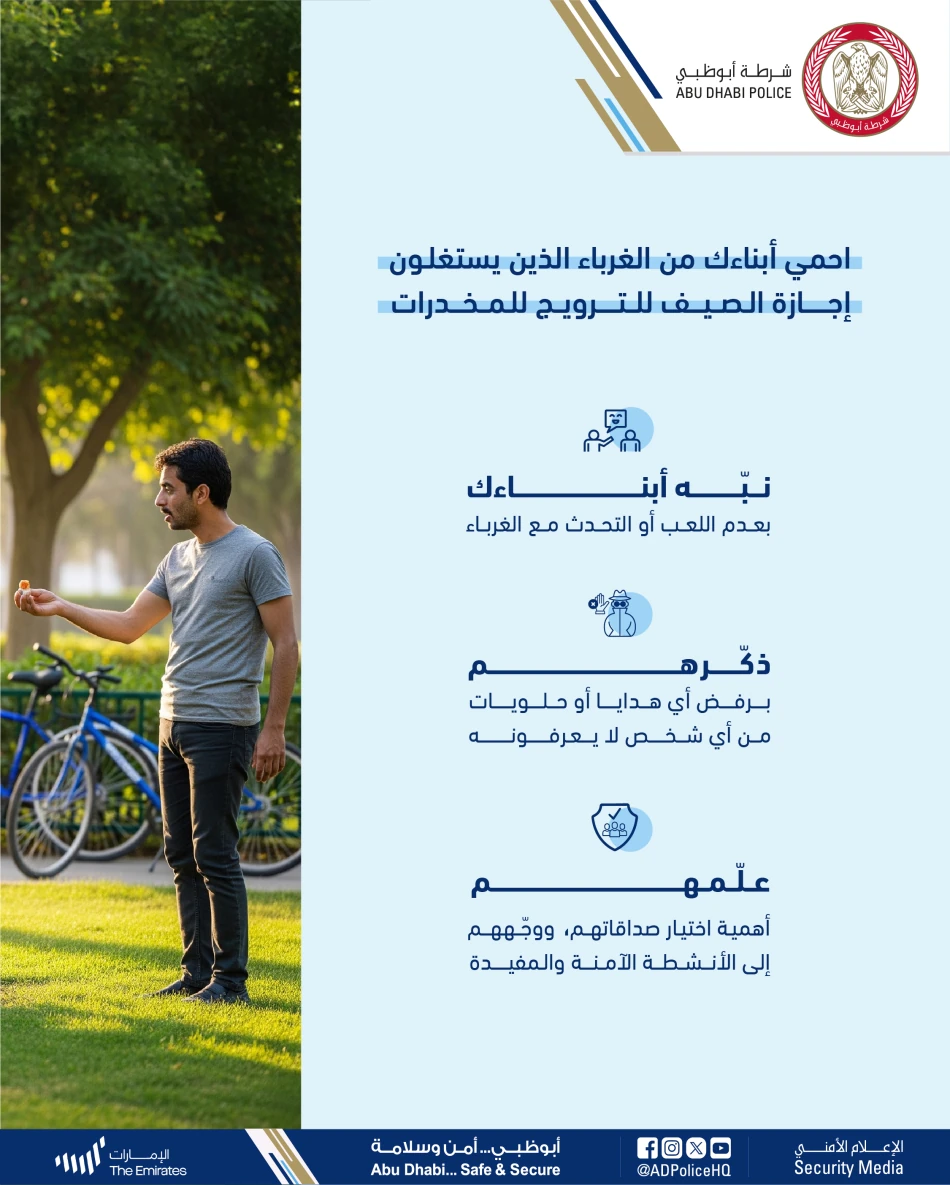
Abu Dhabi Police Urges Parents to Protect Children from Drug Dealers Exploiting Summer Vacation
UAE Police Intensify Anti-Drug Campaign as Summer Break Creates New Vulnerabilities
Abu Dhabi Police have launched a targeted awareness campaign warning parents about drug dealers who exploit summer holidays to recruit children, highlighting how seasonal breaks create fresh opportunities for criminal networks to expand their reach. The initiative underscores the UAE's broader strategy to combat narcotics trafficking by focusing on prevention at the family level.
Summer Holidays: A Window of Opportunity for Drug Networks
The police advisory specifically warns parents to teach children fundamental safety rules: avoid interactions with strangers, refuse gifts or sweets from unknown individuals, and stay away from unsupervised play areas. This targeted approach reflects law enforcement's understanding that drug dealers often use seemingly innocent tactics to establish initial contact with potential young victims.
The timing is strategic. Summer breaks traditionally see increased unsupervised time for children, creating what security experts call "vulnerability windows" that criminal organizations systematically exploit across the Gulf region.
Family-Centered Prevention Strategy
Abu Dhabi Police emphasized that families represent the "first line of defense" against drug proliferation, urging parents to monitor their children's friendships and channel their energy into constructive summer activities. This approach aligns with successful anti-drug models implemented in Singapore and parts of Europe, where community-based prevention has proven more effective than enforcement alone.
Beyond Traditional Policing
The campaign extends beyond simple warnings, encouraging families to help children develop skills and confidence during the holiday period. This psychological component addresses a key factor in youth vulnerability: the search for identity and belonging that drug networks often exploit through false promises of acceptance and excitement.
Regional Context and Broader Implications
The UAE's proactive stance reflects the country's position as a major transit hub, where international drug trafficking routes create persistent domestic challenges. Unlike reactive enforcement approaches common in other regions, the Emirates has increasingly invested in prevention programs that target the demand side of the equation.
This strategy becomes particularly relevant as the Gulf states position themselves as global business and tourism centers. Maintaining low crime rates and social stability directly impacts the UAE's economic competitiveness and international reputation.
Institutional Coordination and Reporting Mechanisms
The police campaign emphasizes multi-institutional cooperation, with various government agencies coordinating their anti-drug messaging. Citizens can report suspicious activities through the dedicated "Aman" hotline (8002626), creating a formal channel for community participation in drug prevention efforts.
This reporting infrastructure represents a significant evolution in Gulf policing, moving from traditional top-down enforcement toward community-integrated security models that have proven successful in countries like Japan and the Netherlands.
Economic and Social Stakes
For the UAE, drug prevention carries implications beyond public health. The country's vision as a regional hub for finance, technology, and tourism depends heavily on maintaining social stability and international confidence. Drug-related crime could undermine the business environment that attracts global companies and skilled professionals to the Emirates.
The summer campaign also reflects broader demographic realities: with a large expatriate population, the UAE must navigate complex cultural approaches to family supervision and child-rearing while maintaining consistent security standards across diverse communities.
Most Viewed News

 Sara Khaled
Sara Khaled






